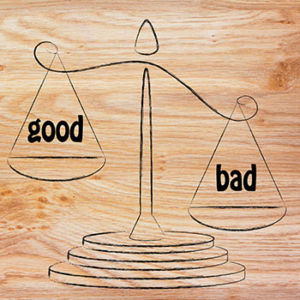 Ever since the federal minimum wage was established in 1938 at 25 cents per hour, the issue of whether it is good or bad for overall employment has been greatly debated. The current minimum wage is $7.25 an hour at the federal level, and we constantly hear about the political debate to raise the minimum wage value.
Ever since the federal minimum wage was established in 1938 at 25 cents per hour, the issue of whether it is good or bad for overall employment has been greatly debated. The current minimum wage is $7.25 an hour at the federal level, and we constantly hear about the political debate to raise the minimum wage value.
Some argue that a minimum wage increase will put more money in the pockets of workers and give those workers the ability to spend more on goods and services. On the other hand, others argue that an increase in minimum wage would have a negative effect on total employment. With payroll being the largest part of most company’s budgets, employers may simply hire fewer workers in response to higher wages. While low wages are bad, I would argue that no wages are worse.
The effects on employment and family income of increasing the Federal Minimum Wage is a report issued by the nonpartisan Congressional Budget Office (CBO) that examines how a minimum wage increase over the next five years (2020 to 2025) would affect the nation’s employment and family income status. In the report, the CBO specifically used an increase to $10, $12, and $15 dollars. Furthermore, the report was conducted for use as a predictor of poverty levels and employment levels.
Minimum Wage’s Increased Effects
 The above study tested the minimum wage at $10 per hour earnings where approximately 3.5 million workers would see wages increase while having almost no effect on overall employment or the number of people in poverty.
The above study tested the minimum wage at $10 per hour earnings where approximately 3.5 million workers would see wages increase while having almost no effect on overall employment or the number of people in poverty.
Meanwhile, experimenting with the minimum wage at $12 per hour saw a stark difference. The study showed that with $12 per hour, 11 million workers would see increased earnings, while an estimated 300,000 jobs would be lost. Even so, the study found that the number of people with an annual income falling below the poverty line would be reduced by 400,000 people. How far above the poverty line these 400,000 people would be was not clear, but the increase in quality of life was shown through the $12 per hour wage increase.
Finally, the study saw that at $15 per hour 27 million people would obtain a wage benefit. Furthermore, with this increase, 1.3 million more people would see a rise in income to boost them above the poverty line. I found this increase very interesting along with the study’s findings that a similar number (1.3 million) of jobs would be lost as a result of the wage increase.
Know the History and Factors
Historically, there has been contradicting ideas from past presidents and political parties on the minimum wage. President Jimmy Carter raised the minimum wage in each of his four years in office, while President Ronald Regan never raised the minimum wage during his eight years in office.
Determining wage increases are by no means simple; there are many factors to consider when implementing or not implementing a minimum wage increase. Not only is wage inflation a consideration, but the increased costs of goods and services must be factored into the decision. For example, if a worker is raised above the poverty line only to see higher prices and perhaps higher taxes, the net effect may end up negative to that person.
Two other things that will have an impact include outsourcing and automating jobs. Lately, more American companies outsource to foreign countries where wages are cheaper. Additionally, increased automation (botsourcing) has become more practical than spending on actual employees. In this way, the wage increase could see many negative effects within the unemployment numbers from these two factors.
The Skilled Renaissance
 My research indicates those most negatively impacted by increased minimum wage are young and low skilled/unskilled workers. Therefore, if I were mentoring someone entering college or the workforce, I would tell them to gain as many skills as they can along with entering the skilled group of the current workforce.
My research indicates those most negatively impacted by increased minimum wage are young and low skilled/unskilled workers. Therefore, if I were mentoring someone entering college or the workforce, I would tell them to gain as many skills as they can along with entering the skilled group of the current workforce.
In June of 2019 I wrote about opportunities for acquiring these skills. In part it said:
While college entrance has increased, there continues to be a growing skills gap. That is to say there are jobs that are not being filled because there are too few individuals with the skills to fill the job.
The good news is there seems to be a renaissance (at least the beginning of one) in focusing on educating with a target of learning rather than just a diploma. This change is coming from a need to meet a talent shortage. Even with an ample supply of college graduates, many of those exiting colleges and universities have not been taught skills that allow them to fill many available high paying jobs. The shortage of workers is in health care, technology and the trades are among the sectors with the most initiatives.
There is a likelihood of increasing minimum wages where some will be impacted positively and others negatively. If you have a need to update your skills in preparation for the job market, now is a good time to do so. Furthermore, if you have a child or grandchild heading to college and/or the work force, be sure they understand the implications on the economy now and in the future. The youth of today will soon take on the estimated 6.4 million unfilled jobs in the U.S. today (Nov 2020); many of which already pay well above $15 per hour according to state or city law.
Lately, what most candidates lack for many jobs are the skills to fill those positions. With the proper skills, one can stand out to recruiters and show that they are able to efficiently succeed in the unfilled position. Beyond this, encourage your friends and family members to reevaluate their skills; learning new skills may be the difference between their current position and a next level promotion. Even so, many positions go unfilled because of the shortage in skilled workers. In this way, staying up to date on your skills and new needed skills can have you filling jobs and moving up in your career in an otherwise unstable market.
December 2020
